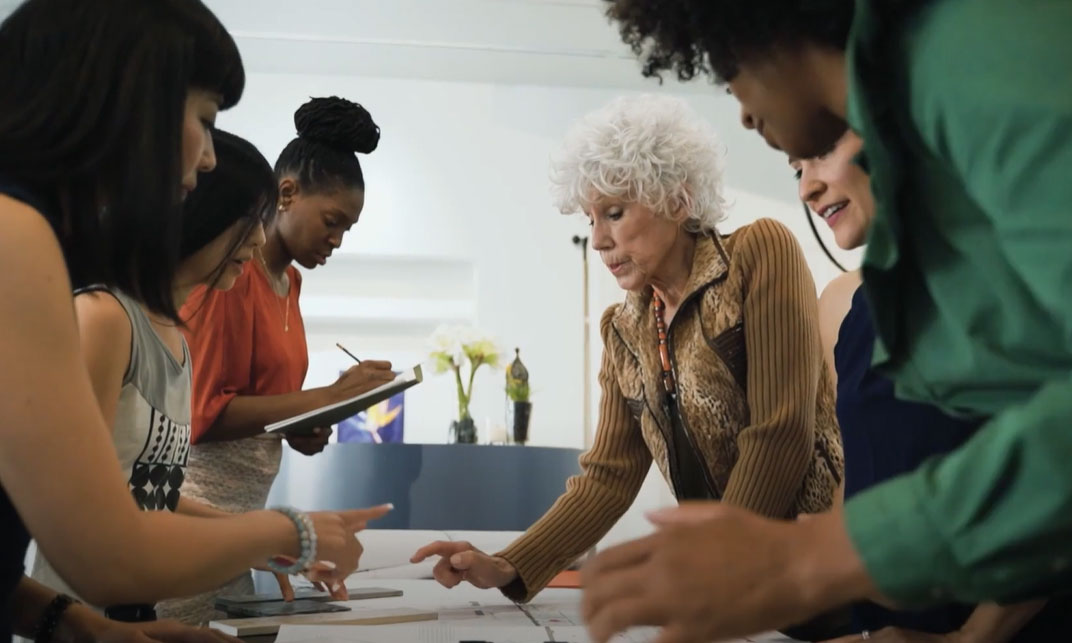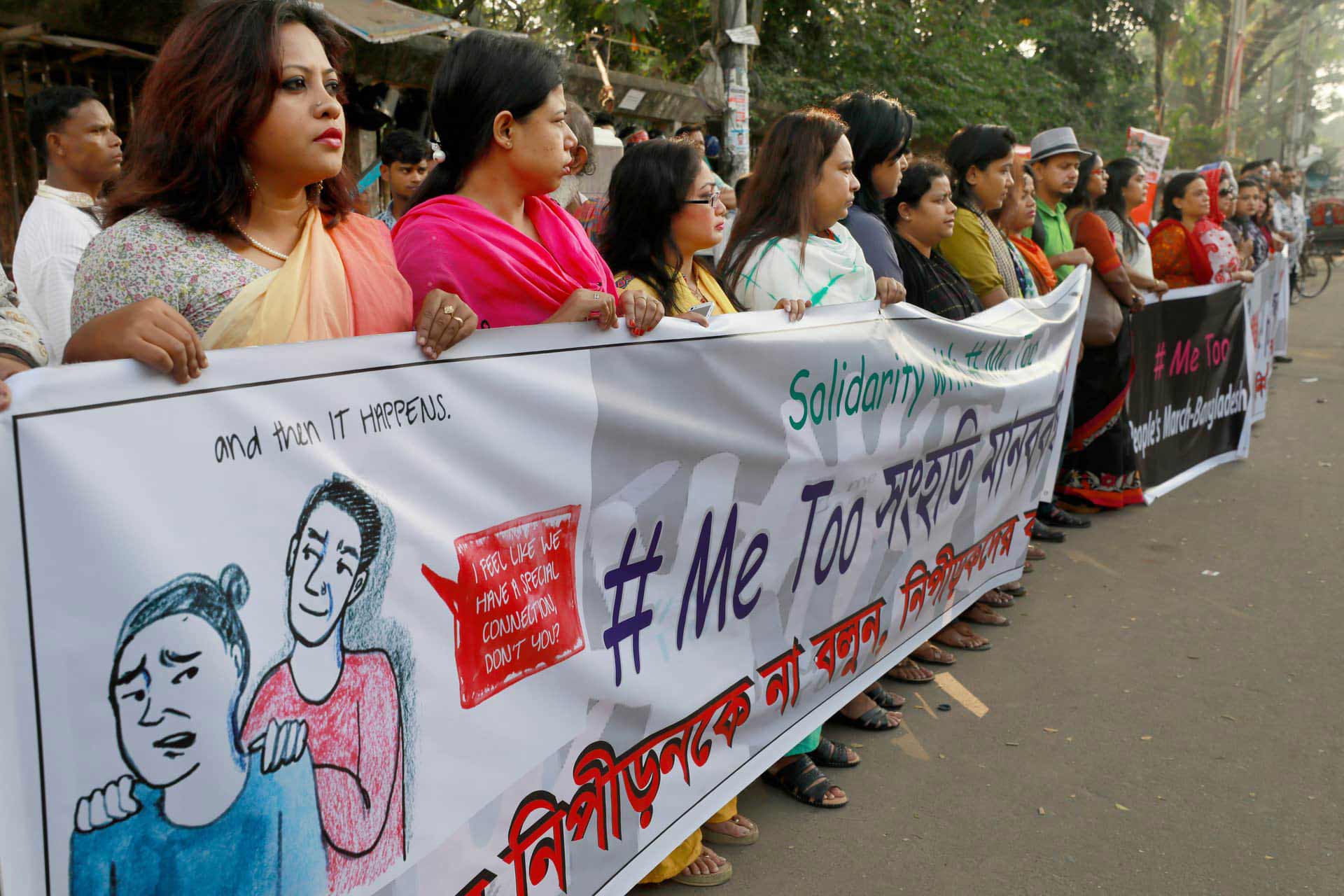This site provides a range of useful links and contacts for career development, planning and progression for women in the College of Business and Law. As a multi-disciplinary College, we’re looking to connect, inspire, encourage and support all women academics in their careers, across the wide array of disciplines we encompass.

Role models allow you to see what's possible for your future

Hear from COSC's two co-directors, Associate Professors Lauren Gurrieri and Lena Wang, as well as our research theme leaders about the work being undertaken by the Centre.
Hear from COSC's two co-directors, Associate Professors Lauren Gurrieri and Lena Wang, as well as our research theme leaders about the work being undertaken by the Centre.
The Center for Organizations and Social Change is a research center located in the College of Business and Law at RMIT University. The College of Business and Law produces quality impact-driven research at the intersection of business, technology, and society. Our researchers adopt a business lens to examine how social change can occur within or through organizations. We have a large and diverse membership across all the core business disciplines in the College of Business and Law, as well as beyond the college at RMIT University. Our research is collaborative and impactful, as we partner with a wide range of organizations, including policy makers, businesses, and the not-for-profit sector.
The project that I'm working on, together with other colleagues from the Positive Aging theme, is called "Shaping Connections." Shaping Connections focuses on helping older adults with digital inclusion. We work with the University of the Third Age and assist them in helping their members. I am a researcher in People and Organization, so my research in general looks into employee and organizational outcomes. However, I am also interested in understanding the career development of migrant women and women in professions such as women in STEM and non-traditional roles.
My recent research projects have specifically focused on understanding the impacts of intersectionality on women's career development. My research underscores the importance of considering linguistically and culturally diverse people to foster inclusive innovations and create a sustainable future for everyone. I collaborate with a wide range of industry partners from private and public organizations, non-profits, as well as startups.
My research is particularly interested in exploring factors and strategies that can facilitate positive organizational support (POS) interactions between expatriates and host country nationals. I have been collaborating with a number of Korean American and German multinationals, which has a clear linkage with the multicultural inclusion theme.
I'm interested in the way organizations respond to health and social problems, such as housing and homelessness, mental health challenges, and substance use. I'm interested in the way we organize responses to those kinds of problems and how organizations can be run in ways that provide more effective responses to the needs of vulnerable communities. Housing is one of the key challenges we face here as a research team at the Center for Organizations and Social Change. We need to work with partners to ensure that the research program we develop is as responsive as possible to their needs.

Dr Kate Grosser explains why gendered injustice worsening rather than improving
Dr Kate Grosser explains why gendered injustice worsening rather than improving
My name is Kate Grosser.
My overarching research question is
really
how do we apply
gender equality and other human rights
in the context of the growing power of
business in society. We have
a whole lot of laws that are applied by
government or regulations in
various different countries but it
doesn't look as if that regulation is
going to be improved
much upon. I was working in the UK
context when I became interested in the
fact that there are all these new kinds
of soft law developing:
new kinds of regulation that involve
business government and civil society
but and I wanted to look at the way
gender equality, in particular, but other
human rights as well,
were included or not in that agenda and
whether that agenda could be useful
for those people working in the
space around gender and human rights.
Before that I had been working
very much around government
accountability so when I started out
in this area of work I began by looking
at the whole process of how do you
mainstream
gender into any area of work.
Mainstreaming gender equality is
both a technical and a political
process so I became interested in how
is gender visible in
data that companies report around
corporate sustainability or corporate
social responsibility.
Also political processes of
participation: who gets to play a role
in deciding what matters and in holding
organizations to account.
What drives me is I've always been
interested in gender equality
and it seems to me that while in some
ways we're going forward, in other ways
we're actually going backwards.
So what drives me is a passion for
thinking about
gender equality
and how to drive change.
And really i'm interested in how do we
drive change in the context of a
changing governance environment which
increasingly involves the private sector
as well as government and the challenges
to keep moving forward rather than
backwards in that context.

Head of CoBL Career Planning Team, Associate Deputy Vice-Chancellor (Research & Innovation, College of Business & Law, RMIT University):
Acknowledgement of Country
RMIT University acknowledges the people of the Woi wurrung and Boon wurrung language groups of the eastern Kulin Nation on whose unceded lands we conduct the business of the University. RMIT University respectfully acknowledges their Ancestors and Elders, past and present. RMIT also acknowledges the Traditional Custodians and their Ancestors of the lands and waters across Australia where we conduct our business - Artwork 'Sentient' by Hollie Johnson, Gunaikurnai and Monero Ngarigo.